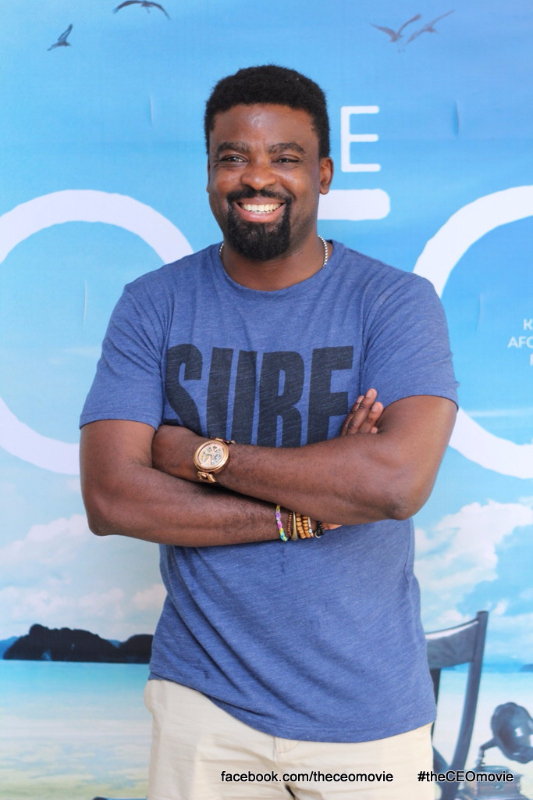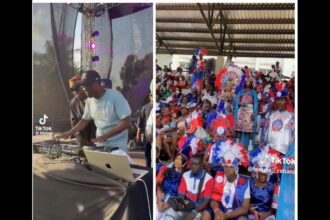When one thinks epic movies in Nollywood, Award-winning actor and filmmaker, Kunle Afolayan, readily comes to mind. In this interview with JOAN OMIONAWELE, the filmmaker talks about the tennets of filmmaking, life as an actor, among other things.
how far have you gone in your battle against piracy?
Well, l have left it to the authorities hoping that they will do something serious about it, after the peaceful demonstration we had sometime ago, a new set of industry people also had another meeting at the Lagos State House of Assembly, led by Desmond Elliot, who is now representing on both sides. I think they had a meeting with the distributors and also had with some of the filmmakers. However, we are just waiting on the government to do something.
Have you recovered the debt incurred from your last movie, ‘October 1’?
Well, because it’s a long time venture, we haven’t, but once the distribution platform and market get better, then we can release the original DVD and other necessary materials on the film but without that, I don’t think anybody can make money from the DVD market
Why did it take you so long to release the DVD?.
Well, it didn’t take long because it’s barely a year that we released it in the cinema that the film was officially released in October and the way distribution is structured, we go to cinemas, we do DVDs, we do online platforms, but DVD is usually the penultimate and we are about getting to that stage and it is not also about replicating DVD and chunking it out, we need to strategise and put the marketing model in place. These are all the things we were doing and also trying to fix a date for the release before the film got pirated.
Don’t they have gatekeepers at the cinemas because the belief is that the film was pirated from the cinema, or where else do you think it got pirated?
Well, that question will have to be put to the cinemas because if there is any evidence that it was pirated from the cinema, then the cinema can be held liable, but there are so many other media through which films can be pirated. For instance, the process of sending the films to some of the awards or festivals the copy can be leaked. There are several ways to piracy, it’s just left for one to do all that he can to protect his content.
Last year you said you were relocating your family to Ghana, are you still bent on that or was it just a joke?
It was not a joke, you know if you do a lot of work, it is a necessity for you to benefit from the work you do, while you should enjoy some level of comfort, but here it’s like the reverse is usually the case, you don’t get to enjoy what you labour for because a lot of things are not properly put in place, so for me, it’s about comfort. But now that we have a change in government the hope is very high and I believe change is definitely at hand, maybe it’s the beginning of revolution.
Looking at your last movie written by Tunde Babablola, how do you come about interpreting the story in terms of make-up, cast and all other materials for the movie?
Well, that’s what makes you a film maker and a director, I visualise and sometimes I give an idea about the kind of story I want to write and after the first wrap has been written, we go through it and have series of discussions with the writers on your vision and for the very first day you start picturing ideas on how the story will be. You can now call other experts to put in their own ideas. But what makes you a director is the fact that you can bring all these people together to your own world and you guys will make it up
Talking about your lead role in October 1, Prince Aderopo, you do not always feature popular actors in your movies, why is this so?
First of all, before you give a particular role to a character, you need to see the person’s image, then you consider other characteristics, for example the role of Aderopo depicts someone who is good-looking, educated and the first graduate of his town, and for that you need someone who can do the accent of an educated Nigerian in the 60s and an accent which is close to that of a Briton. So it’s rare to get that kind of people if you look through most of the actors we have today, it is either they have American accent or they blend American, British and Nigerian accents together, so you will not even know what accent they are speaking. The lead role in ‘October 1’, Demola, is someone I’ve known from Adam and I know he has the charisma to carry out the role perfectly because he studied in the UK and his accent was perfect for that role, and also, I am not about using a popular actor, I am more about a character’s talent. Right now in my career I think it’s more about the production company where I work which is Golden Effects and when people realise that the production is coming from Golden Effects, they will rather go for it than me putting a known face on the poster, so we have been able to build a pedigree and it is really working for us.
You are set to produce another movie, The CEO, how is the experience like, especially that you are working with the likes of Angelique Kidjo and other talents from across Africa?
Well, it is part of the intention to project Africa to the world. It has been a whole new experience bringing together people from Ghana, Uganda, Morocco and even from the Caribbean together. I learnt a lot from my father and I know that if we do not tell our own stories, other people will tell our stories and sell them to us. We are in the post production stage and hopefully, it will be released soon.
Do you have lots of friends in Nollywood?
Yeah, I do I have friends and colleagues but they are not many.
It is being said that there is disparity between you and some of the Nollywood actors.
Well, not really, I think it’s just a case of interest, because we totally operate in different models, and because of this it is most times likely that our paths will not cross, but it doesn’t remove the fact that when there is a gathering where all of us need to come together, we do come together to play and all that, but when it comes to work you do what you believe in and the others will do what they believe in that is what it is because for me, it’s about my work, so there are no disparities.
Looking at some of your movies you still drive at preserving the African culture, Nigerian culture and the Yoruba culture is this deliberate or you just find yourself in it?
Well, it is deliberate, that is who I am because I can’t sell the British, American, Greek or Italian culture. I can only sell what I know and what I am part of so that when questions are being raised, I will be able to defend and justify my work. It is more of being proud of who you are, and that is what I do and for posterity and the sake of the unborn children. We need to start documenting all of these things because to a large extent the culture is fading; children are not speaking our languages anymore.
What is your relationship with Mr Tunde Kelani?
Well, Uncle TK is someone I grew up knowing. I met him on my father’s set and while I was a young boy, he was one of those I could reach out to as I started with my career as an actor. I was with him in the movie. Saworoide which was released over fifteen years ago and till date, we are still close. He is a mentor, father, colleague and a friend.
Have you ever felt like giving up on the job at any point in time?
It comes up, but I am not giving up making films, but maybe giving up making film in Nigeria. But even if I make films outside of Nigeria, I will still do films that will represent Nigeria, it is possible that I can be in Ghana but I will create stage and settings that will look like that of Nigeria, invite actors to play the role of Nigerians. This environment, to a large extent, is frustrating for filmmakers and a lot of entrepreneurs are trying to break boundaries and all of that, but we are still here.
As a filmmaker who is always busy, how do you work with being a husband and a father?
I spend quality time with my family, especially my kids and you can see some of these on the social media, We play basketball, I fly kite with them, we go out, I do things that an average father who stays with their children every day cannot do. And those are the things I believe will give them memories of me even when I am not around. Also, I open their horizons to what I am doing, because they know a lot about films and before I travel I inform them earlier and they are proud because they know it’s not that he just leaves home as he likes and comes back whenever he likes.
Do you want your daughters to be actresses?
If they like the career, I will support whatever they decide.
How frustrated were you to have dumped banking for filmmaking?
Well, I was not frustrated as a banker, because I started banking through administration and I have put that knowledge to use, because to a large extent, it relates to the business aspect of what I do now, so I was not frustrated. I did that beat and when it was time to move, I moved.
In the next few years, what would you like to be said about Kunle Afolayan?
It is all about the work. I will just like to be remembered for my good work and I will like to put a structure in place, so that I can influence lots of young ones out there to be the best that can be.








